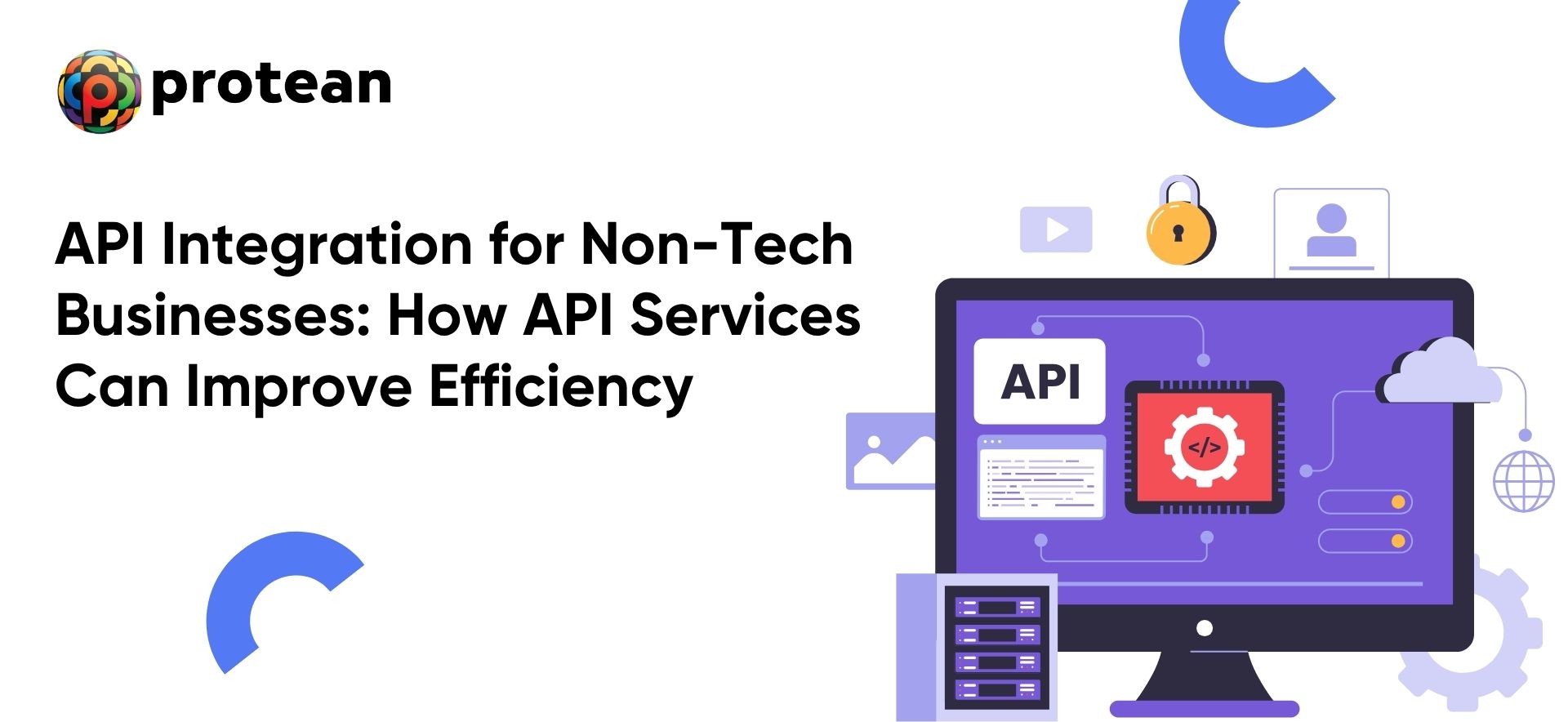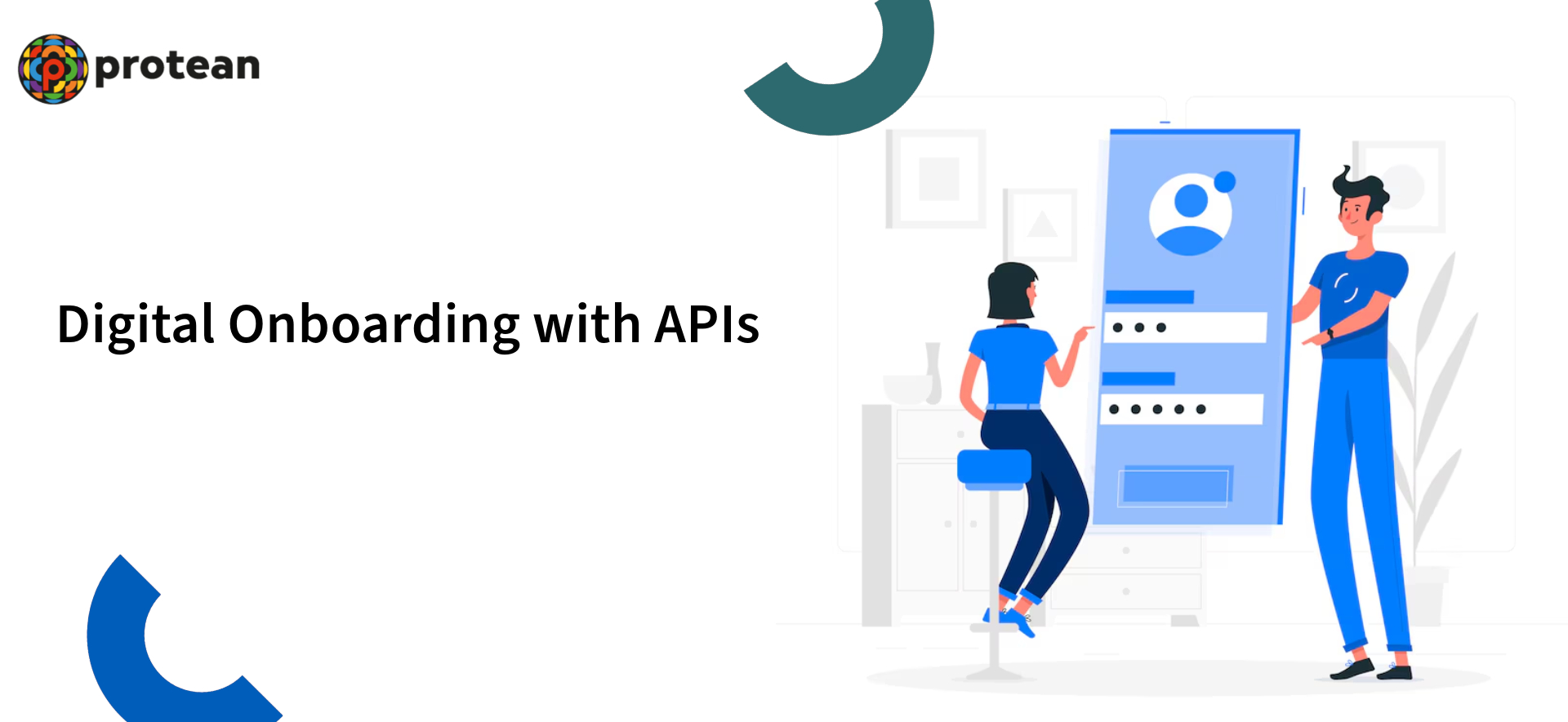Blog
API Integration for Non-Tech Businesses: How API Services Can Improve Efficiency
API integration might sound like a term reserved for developers, but it’s something that even non-tech businesses rely on more often than they realise. API stands for Application Programming Interface. In simple terms, it allows different software applications to talk to each other. Instead of working in isolation, your apps, websites, and tools can seamlessly share data and perform tasks using API services in the background.
For example, when an e-commerce platform pulls delivery status from a logistics provider or when a payment gateway updates your customer’s order automatically, that’s API integration at work.
Why Non-Tech Businesses Should Care About API Integration?
Just because your business doesn’t revolve around coding or software doesn’t mean you can't benefit from using API integration services. In fact, many manual tasks and disjointed workflows in traditional operations can be simplified using innovative API tools.
Whether it’s finance, retail, logistics, education, or hospitality, the correct API setup can free up time, reduce errors, and speed up processes.
Key Benefits of API Services for Non-Tech Operations
Here’s how API services can transform daily operations:
1. Automation of Repetitive Tasks
APIs can remove the need for entering data into multiple systems. Once an action is triggered in one system, the API can automatically pass on the relevant information to another platform.
2. Faster Communication Between Tools
Rather than waiting for files or reports to be shared manually, API integration tools ensure that platforms like inventory systems, payment apps, or CRMs update each other instantly.
3. Improved Customer Experience
Quick updates, real-time tracking, and accurate information flow can enhance how your business interacts with customers.
4. Reduced Manual Errors
By letting software handle repetitive transfers and updates, the chances of human errors like typos or incorrect entries go down significantly.
5. Flexible and Scalable Processes
As your business grows, your tech stack may change. API services allow new software to be integrated smoothly without overhauling the entire system.
| Also Read: API-Based Background Checks |
Where can API Integration be Used in Non-Tech Businesses?
Non-tech sectors are becoming increasingly tech-enabled. Let’s explore a few areas where API integration plays a role:
- E-commerce: Connecting product catalogues, payment systems, logistics, and customer service tools.
- Retail: Linking billing systems, stock management, and loyalty programmes.
- Finance and Accounting: Syncing invoicing apps with bank feeds or GST platforms.
- Travel and Hospitality: Updating booking systems, customer databases, and payment gateways in real-time.
- Healthcare: Managing patient records across platforms or linking pharmacy inventories.
Choosing the Right API Integration Tools
You don’t have to be a tech expert to choose useful API integration tools. Here’s what to keep in mind:
- Ease of Use: Look for services that offer user-friendly interfaces, especially designed for those without a technical background.
- Pre-Built Connectors: Many popular tools come with built-in connectors to link commonly used software platforms.
- Customisation Options: Your business may have unique requirements. Choose API services that allow some level of customisation to match your workflows.
- Support and Documentation: Make sure you get good support, either in the form of documentation, tutorials, or a responsive help desk.
- Security Standards: Data safety is crucial. Confirm that the service follows appropriate data protection protocols.
| Also Read: API Strategies for Business |
Challenges to Watch Out For
API integration is beneficial, but it’s not entirely without hurdles. Being aware of the following can help you avoid common roadblocks:
- Compatibility Issues: Not all systems are easily connectable. Some older platforms may not support modern APIs.
- Maintenance Needs: APIs need to be updated regularly as platforms evolve.
- Learning Curve: Even with simple tools, it might take some time for your team to understand and optimise them fully.
Making API Integration Work Without a Tech Team
You might wonder if all this is manageable without in-house developers. The answer is yes. Several no-code and low-code platforms allow businesses to implement and manage APIs without writing a single line of code. These services simplify the process through drag-and-drop interfaces and preset templates.
Additionally, some consultancies and freelancers specialise in setting up and maintaining API systems for small businesses. The key is to start small, test how it fits into your operations, and scale as required.
Conclusion
API integration isn’t just for tech companies anymore. It has become a practical and powerful way for all types of businesses to streamline tasks, improve communication, and enhance customer service. With a bit of exploration and the right tools, even the most traditional businesses can modernise their processes and stay ahead in a competitive market.
| Also Read: What does API mean in Banking |
Frequently Asked Questions
1. Can I use API integration services without coding knowledge?
Yes, many modern API tools are built for non-developers. They offer easy interfaces and templates that help you connect platforms without needing to code.
2. What are the risks of using API services in a small business?
The main concerns are around data security and ongoing maintenance. It’s important to choose trusted platforms and keep APIs updated.
3. Are there affordable options for businesses just starting out?
Yes, there are several free or entry-level API integration tools suitable for small businesses. These can be upgraded as your needs grow.
4. How do I know if my software supports API integration?
Check the software provider’s documentation or support page. Most modern tools list API capabilities and available connectors clearly.
5. What’s the difference between API integration and using a plugin?
Plugins are specific to platforms and offer fixed functions. APIs are more flexible and allow different systems to interact directly, offering more control over your workflow.






